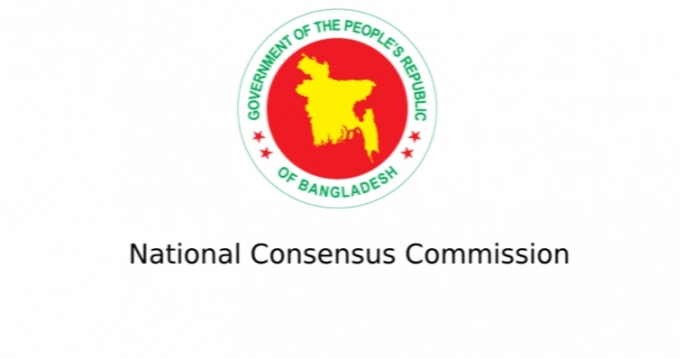The 17th session of the second-round reform talks between the National Consensus Commission (NCC) and political parties began on Tuesday morning to discuss several constitutional issues.
The discussion, presided over by NCC Vice Chair Prof Ali Riaz, started at around 11:30 am at the Foreign Service Academy in the capital.
At the outset of the session, a condolence motion was adopted expressing profound grief over the casualties in the tragic BAF aircraft crash at the Milestone School and College compound in the capital’s Diabari area.
A one-minute silence was observed and a munajat was offered, seeking the salvation of the departed souls and recovery of the injured.
Yesterday, the National Consensus Commission has postponed its afternoon session after expressing condolences and offering prayers in response to the crash of a training aircraft in Uttara.
NCC member Dr Badiul Alam Majumdar read out the motion, which was later signed by the participants of the discussion.
In his introductory speech, Prof Ali Riaz urged the political parties to continue their cooperation in reaching final decisions on the remaining reform issues within the next several days.
Several important reform matters, including the caretaker government system and the provision allowing the prime minister to hold more than one post, are scheduled for discussion in this 17th session.
Around 30 political parties, including the Bangladesh Nationalist Party (BNP), Bangladesh Jamaat-e-Islami, and the National Citizen Party (NCP), are taking part in the talks to present their respective positions on the proposed reforms.
The Consensus Commission aims to finalise a unified stance on key reform proposals by July 31 after completing discussions on nearly 20 major constitutional issues during the ongoing second-round dialogue.
The second round of talks was inaugurated on June 2 by Chief Adviser and Commission Chairman Prof Muhammad Yunus.
Formed on February 15, 2025, under the leadership of Chief Adviser Prof Yunus, the Commission was tasked with forging a unified national stance on crucial state reforms.
The Commission held its first round of talks from March 20 to May 19, engaging with 33 political parties and alliances.


